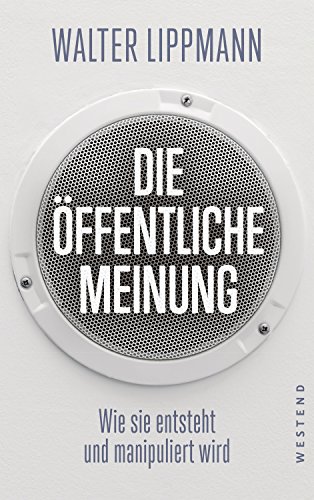Sublime
An inspiration engine for ideas

Opinion | How to Save the American Experiment
“There is a bias in all opinion, even in opinion purged of desire,... See more
Dan Williams • The deep and unavoidable roots of political bias
becoming a matutinal rite as inevitable as coffee and orange juice. When the New York World—famous for its liberalism and the wit of its columnists—had ceased publication in February, 1931, Lippmann, its editor, had gone over to the Herald Tribune and to sudden national fame. Clear, cool, and orderly in his thinking, he seemed to be able to reduce
... See moreFrederick Lewis Allen • Since Yesterday: The 1930s in America, September 3, 1929–September 3, 1939
“Lippmann, who was emerging as America’s most influential liberal journalist, understood information and propaganda to be the fundamental democratic problem under conditions of a mass population and a mass press. The crisis of democracy, he wrote, was in its essence “a crisis in journalism.” The distance between what he called “the world outside
... See moreDie öffentliche Meinung: Wie sie entsteht und manipuliert wird (German Edition)
amazon.com
to participate in the great decisions of government. There was, Lippmann brooded, no “intrinsic moral and intellectual virtue to majority rule.” Lippmann’s disenchantment with democracy anticipated the mood of today’s elites. From the top, the public, and the swings of public opinion, appeared irrational and uninformed. The human material out of
... See moreMartin Gurri • Revolt of the Public and the Crisis of Authority in the New Millennium
In 1919, Lippmann wrote a despairing essay in the Atlantic Monthly titled “The Basic Problem of Democracy.” Democracy’s founding ideal—that of a well-informed citizenry capable of making reasoned judgments about national problems and plans—had come into being in a much simpler time, he argued, when most concerns were local and people had direct
... See moreNicholas Carr • Superbloom: How Technologies of Connection Tear Us Apart
The press is supposedly neutral. You write what the man says.” Walter Lippmann defended the press in similar terms. “McCarthy’s charges…are news which cannot be suppressed or ignored,” Lippmann wrote. “They come from a United States senator and a politician…in good standing at the headquarters of the Republican Party. When he makes such attacks
... See more